Teenagers think differently to grownups – they are more likely to take risks, be sleepy, misread emotions, give in to peer pressure and lack self-control. They commonly also go through adolescent egocentrism This is when teens and older tweens belief that others are highly attentive to their behaviour and appearance. That is, egocentric adolescents believe that all eyes are on them all the time. Adolescent egocentrism gives rise to two related beliefs seen in the late tween and teen years: the “imaginary audience” and the “personal fable.”
The project delved into this notion with the teenagers that we worked with. The artist met with the students and together brainstormed some of the things that people their age go through and what affects them on a day to day basis. We talked to them about these ‘voices’ inside their head and ‘the imaginary audience’ that they build, and from their daily experiences, a performance was built. The children were given the chance to explore the narrative of the performance with the artistic director and the school Guidance Teacher, Ms Anthea Darmanin and together developed the performance, from beginning to end. The artist was there to facilitate the students through it, giving them ownership. Ownership enhances self-esteem and strengthens a sense of responsibility. Grover (2015) published a book about the negative voices inside the teenage brain.
This project aimed to hold several workshops among the creatives (one of whom is also a psychologist by profession), Dingli school teenage students, a programme developer from Esplora and the relevant Dingli school teachers (PSCD, Guidance & Biology teacher, Art Teacher and Design and Technology teacher to truly have the whole performance being owned by students including creativity and set design) to truly understand what goes on in the teenage mind.
These workshops were a safe environment where teenagers would be able to express how they feel, their troubles and the way they perceive the concept of ‘self’ in relation to others and society. Sean Grove, also a psychotherapist by profession, in his research indicated that: If a teenager could tell us how to help him/her, this is what he/she would say:
The above concepts were all explored through workshops and the narrative emerging from such workshops was translated to a performance together with Pamela Kerr, a creative practitioner and artistic director
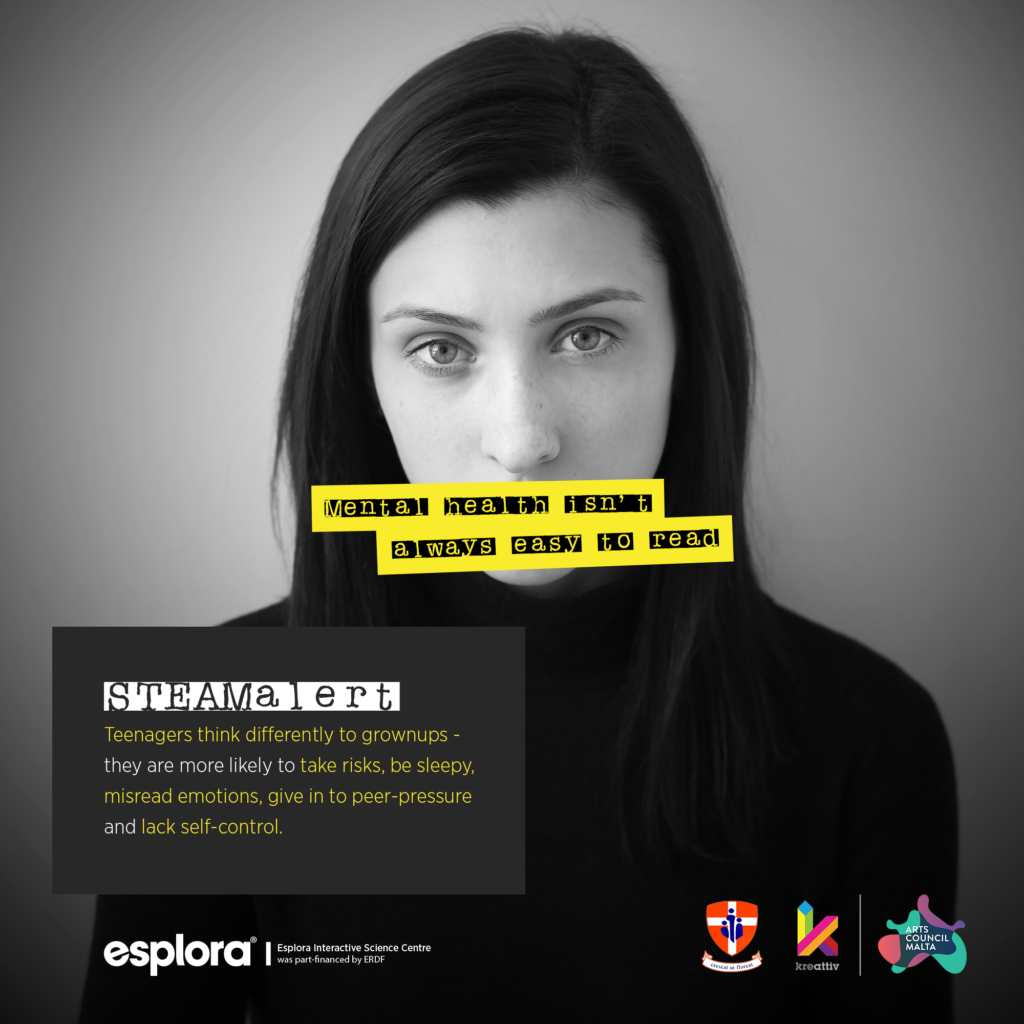 |
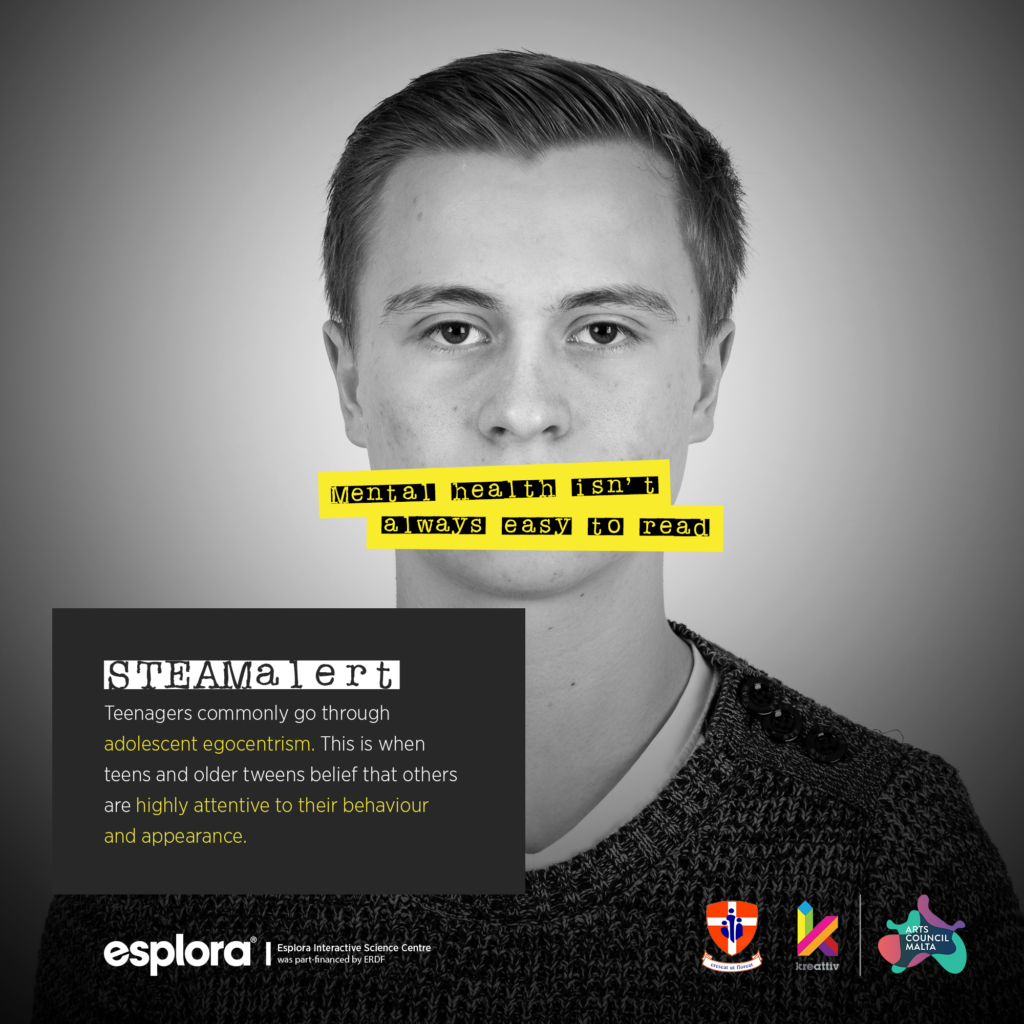 |
|---|---|
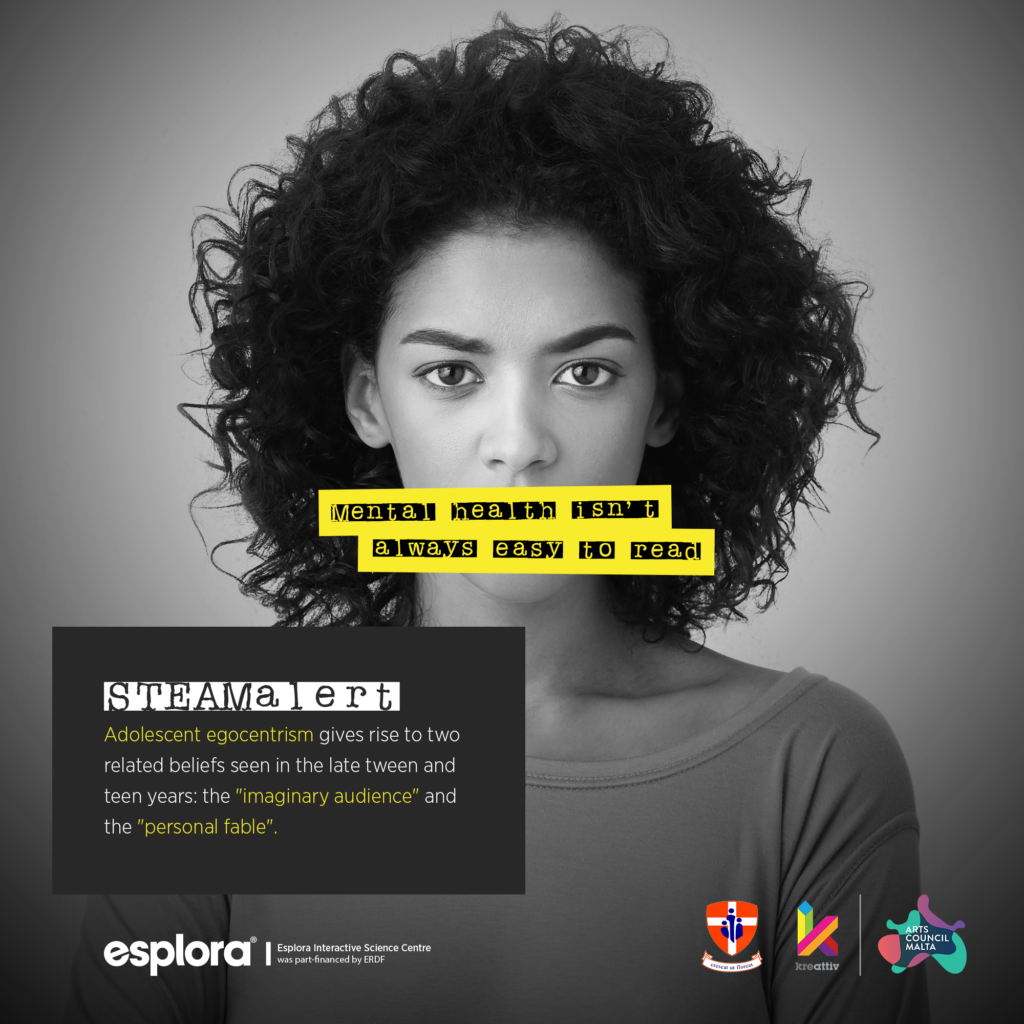 |
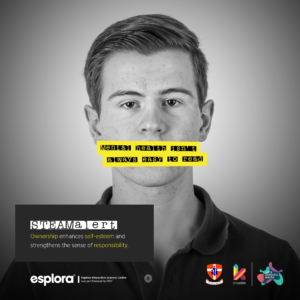 |
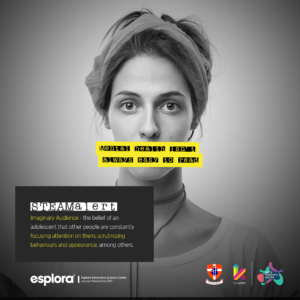 |